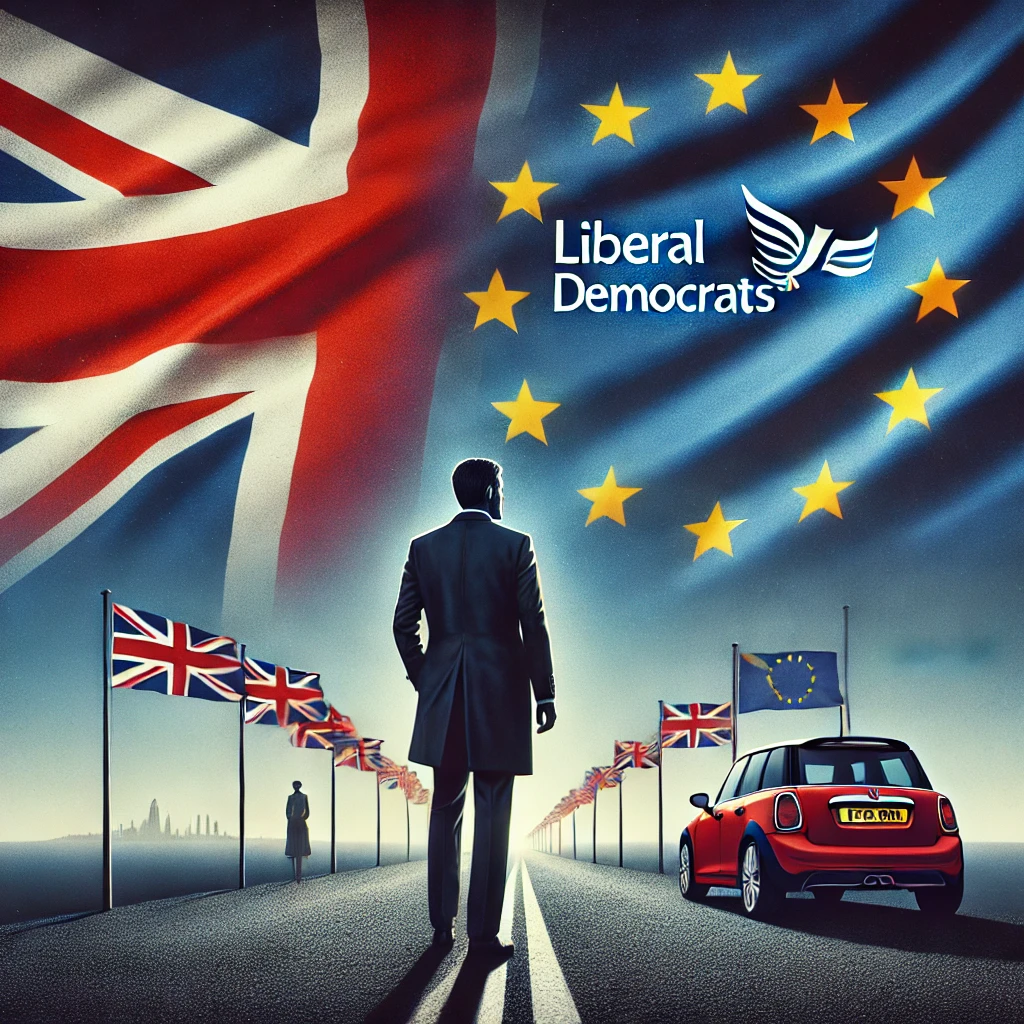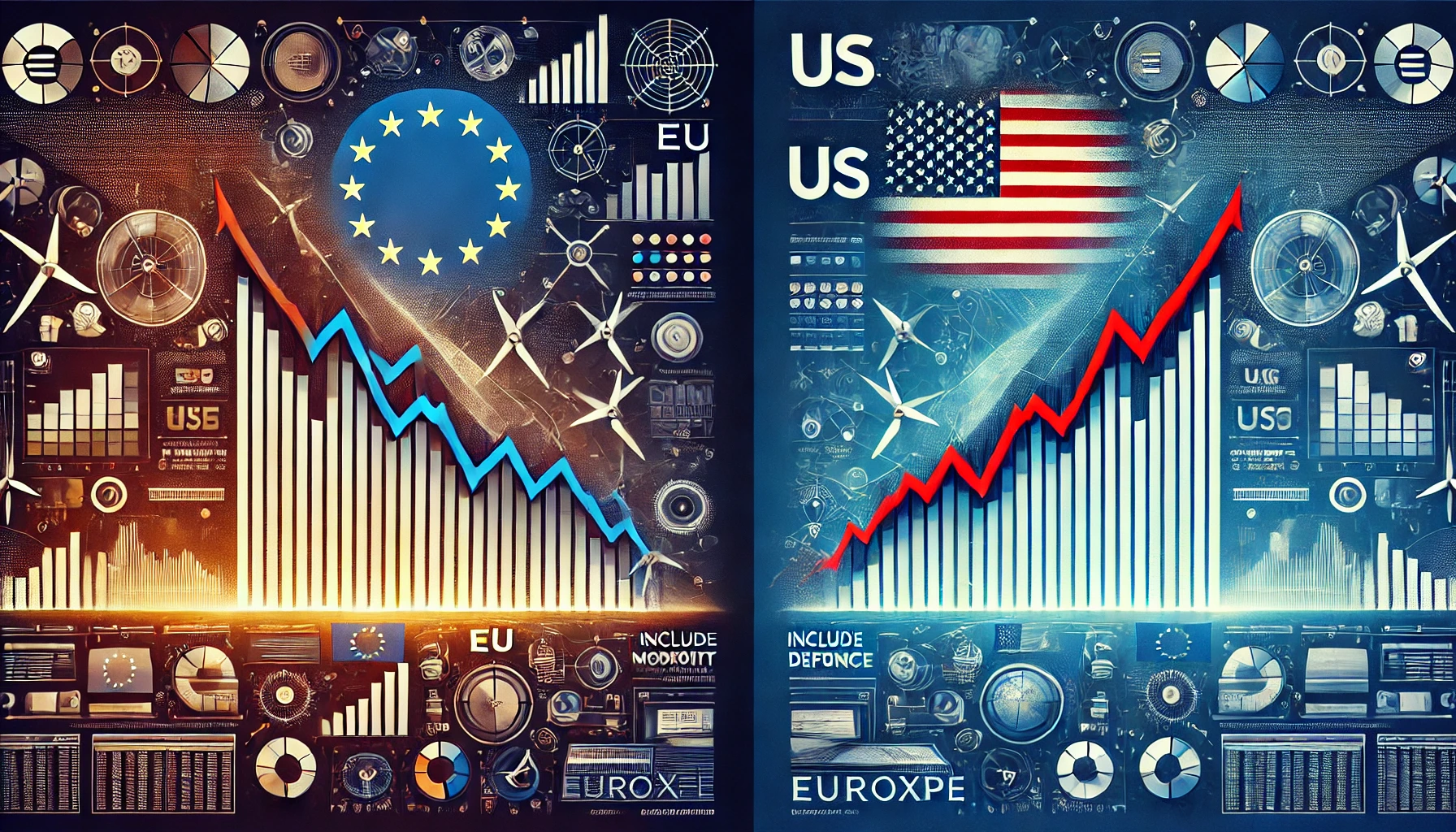Following years of branding themselves as the party of “stop Brexit”, the Liberal Democrats have now adopted a more tempered stance towards rejoining the European Union. As the party convenes for its annual autumn conference, it is evident that while the EU remains a long-term goal, the immediate political strategy has shifted towards focusing on domestic issues and fostering gradual ties with Europe. This shift has sparked both support and discontent within the party.
A Strategic Shift for the Liberal Democrats
In the aftermath of the 2024 general election, the Liberal Democrats saw a significant increase in their parliamentary representation, expanding their ranks to 72 MPs, the highest in the party’s history. However, this success was not marked by a loud campaign to rejoin the EU, a key policy that once defined their identity. Instead, the leadership, under Sir Ed Davey, opted for a more subdued approach, focusing on pressing issues like social care, while leaving the topic of Europe in the background.
This more cautious approach has caused friction within the party, particularly among the Lib Dem Europhiles. According to Rob Harrison, chairman of the Liberal Democrat European Group, many grassroots members hoped for a stronger stance on rejoining the EU during the election campaign. While some may feel disappointed, Harrison remains optimistic that now, post-election, the party leadership may take bolder steps towards rebuilding relations with Brussels.
A Gradual Roadmap Towards EU Membership
The Liberal Democrats have not abandoned their European ambitions altogether. Instead, they have outlined a four-stage roadmap that sets the foundation for potential EU membership in the future. This roadmap includes steps such as rejoining EU programmes, enhancing cooperation, and ultimately re-entering the single market, which would allow the free movement of goods, services, and people.
At this year’s conference in Brighton, party members took an important step by voting on policies aimed at strengthening ties with Europe. One key proposal involved improving youth mobility between the UK and the EU. Activists unanimously backed the motion to create a youth mobility scheme for those under 35, abolishing visa fees and joining the Erasmus Plus student programme. This move aligns with the party’s gradualist strategy and highlights their focus on achievable, incremental progress in re-engaging with the EU.
Voices of Dissent Within the Party
Despite the positive steps taken at the conference, not all members are satisfied with the party’s current approach to Brexit. Some, like Mark Johnston, an EU policy specialist and contributor to the party’s manifesto, argue that the Liberal Democrats are not doing enough to differentiate themselves from Labour on this issue. Johnston stresses the importance of making Brexit a central feature of the party’s platform, especially since Labour leader Sir Keir Starmer has made it clear he does not intend to rejoin the EU.
Others within the party argue that voters are more concerned with issues closer to home, such as the cost of living, NHS pressures, and local infrastructure problems like sewage and potholes. David Chalmers, a long-time pro-European activist, notes that during the election campaign, Brexit was not a top priority for many voters. Similarly, Helen Morgan, MP for North Shropshire, emphasised that the issues her constituents raised most frequently during the campaign were related to A&E waiting times, rising energy costs, and other domestic concerns.
Listening to the Voters
The divide within the Liberal Democrats reflects a broader challenge in British politics: how to address Brexit when many voters are more focused on immediate, day-to-day issues. While some members of the party, such as Josh Babarinde, the newly elected MP for Eastbourne, acknowledge that there is no overwhelming demand to rejoin the EU, they also believe the party’s stance on Europe remains clear.
Although the Liberal Democrats are no longer shouting from the rooftops about rejoining the EU, Sir Ed Davey has made it clear that the party’s long-term goal remains a closer relationship with Europe. The challenge now is balancing this ambition with the need to address domestic issues that matter most to voters in the here and now.
A Long Game on Europe
As the Liberal Democrats celebrate their record success in the general election, it is evident that the Brexit debate within the party is far from over. While some members, including the Liberal Democrat European Group, are willing to wait until the 2034 Parliament to push for rejoining the EU, the party leadership remains focused on more immediate concerns. For now, the Brexit truce appears to be holding, but the long-term direction of the party’s European policy remains a point of contention.
This delicate balancing act between domestic priorities and European ambitions will likely shape the Liberal Democrats’ future strategy, as they continue to navigate the post-Brexit political landscape.






